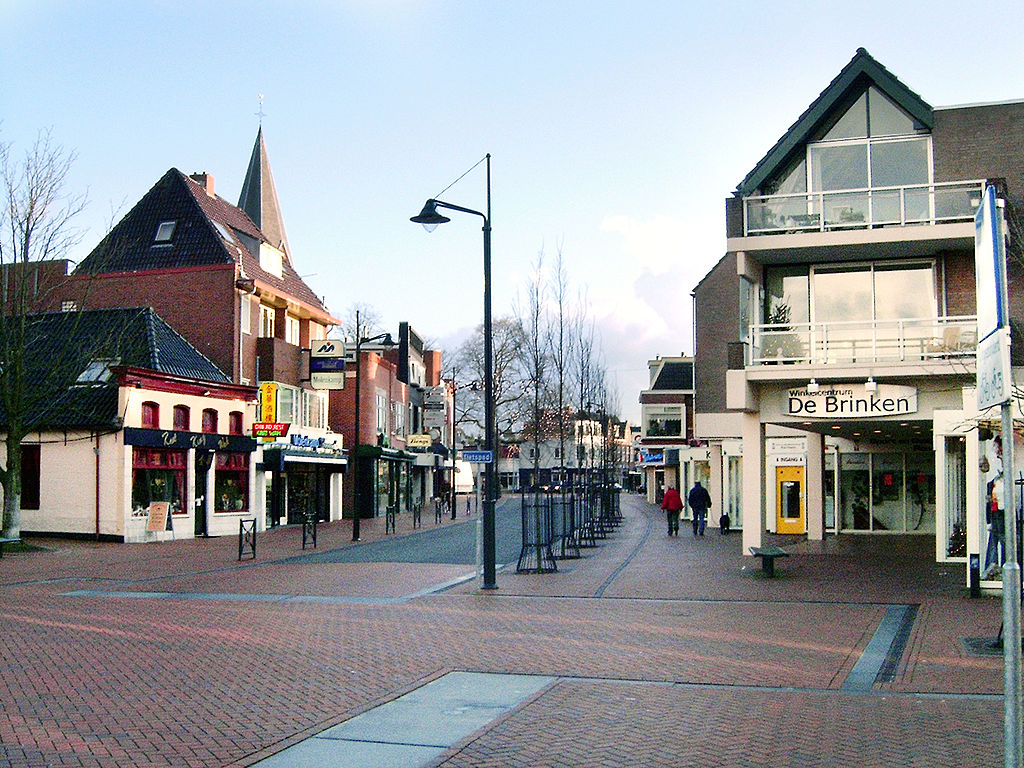Lenin is ascribed this statement that unfortunately cannot be dismissed completely: “Revolution in Germany? That will never happen, if these Germans want to storm a station, they’ll buy a platform ticket first!
This is why lawn edgings are so popular in Germany. And this is why the myth persists that the majority of tax literature worldwide deals with German tax law.
We Germans are known and appreciated for such virtues as diligence, conscientiousness, and sense of order. Even though we sometimes overdo it, complain about over-regulation and incapacitation and then demand a reduction in bureaucracy, our relationship to creative chaos or even anarchy is, to put it mildly, rather tense.
There are always good reasons for another rule, a new instruction or a new process. After all, every eventuality must be considered, every special case must be regulated and every abuse must be prevented. Where would we end up otherwise?
Where would we end up?
Kurt Marti
When everyone said,
Where would we end up,
And no one would go,
To have a look,
Where you’d end up,
If you went.
Good question. That’s why the Dutch traffic planner Hans Monderman actually went and looked. For example at the busiest intersection in Drachten. Here two two-lane main roads meet, with 22,000 cars, 5,000 cyclists and numerous pedestrians. Of course, this requires rules, signs, markings, traffic lights and a clear spatial segregation of cars, cyclists and pedestrians anyway. Where would we end up otherwise?

All this is actually no longer needed in Drachten. Instead, Hans Monderman relied on his shared space scheme. No cycle paths, no road markings, no priority signs or traffic lights, and not even sidewalks bring order to the chaos. Hans Monderman himself demonstrated how well this works by walking backwards over one of his intersections with his eyes closed.
When you treat people like idiots, they’ll behave like idiots.
Hans Monderman
Where coexistence is no longer regulated by rigid rules, confusion and ambiguity prevail. And that is exactly the point, because now the road users have to somehow organize themselves in a different way. There is much more eye contact and everyone pays more attention to other people instead of the traffic lights and their right of way. Not only in Drachten, but also in other places with this concept of shared space, this has led to a reduction in speed and thus to a better flow of traffic and significantly fewer accidents.
You have to systematically create confusion, it sets creativity free. Everything that is contradictory creates life.
Salvador Dalí
As paradoxical as it sounds, but more confusion through fewer rules leads to more security. Similar results were seen in the Danish town of Christianfield, where after removing traffic lights and signs, fatal accidents fell from three to zero per year. And in the UK, several cities removed the centre line and a study found that 35% fewer accidents occurred as a result (cf. WIRED).

Not only on the roads does over-regulation prevent better cooperation, bureaucracy is also rampant in many organisations. This was certainly the case with FAVI, a French die-casting manufacturer. There, for instance, a worker had to show his superior the old pair of gloves, receive a confirmation from him to be handed over a new pair of gloves from the warehouse.
When Jean François Zobrist, during his first time as CEO, found a worker waiting in front of the warehouse, he did the math and found out that this worker was operating a machine that cost 600 francs per hour, or 10 francs per minute. Since the whole process of dispensing took 10 minutes, during which the machine was at a standstill, the gloves, worth 5.80 francs, cost the company an additional 100 francs through this control mechanism! (cf. Corporate Rebels, Teil 1).
So Jean François Zobrist abolished these and many other rules and organized FAVI into mini factories of 15 – 35 employees who independently made all decisions (including the previously centralized functions of Sales, Planning, Engineering, HR, etc.). Here too, fewer rules did not lead to the dreaded chaos, but rather to more individual responsibility and self-organisation.
The success of this transformation was remarkable: FAVI was able to grow from 80 to over 500 employees, continuing to produce profitably in Europe with above-average wages, where other suppliers had long since shifted production to the Far East. (cf. Frederic Laloux, Reinventing Organizations. Amazon Affiliate Link).
Give people slightly more trust, freedom, and authority than you are comfortable giving them. If you’re not nervous, you haven’t given them enough.
Laszlo Bock
Perfection is not reached when there is nothing more to add, but nothing more to omit. Antoine de Saint-Exupéry thus sums up the principle that guided Hans Monderman. And that should guide us much more in the way we shape our collaboration. After all, let us finally rely more on fundamental principles in our organisations instead of a flood of rules and trust in people and their common sense.
A good general guideline for this is provided by the Manifesto for Human(e) Leadership: Purpose and trust over command and control. And in concrete terms, this could look like the Netflix Culture Statement, for example:
- Spending controls: „use good judgment“,
- Policy for travel: „act in Netflix’s best interest“,
- Vacation policy: „take vacation“ or
- Parental leave policy: „take care of your baby and yourself.“



